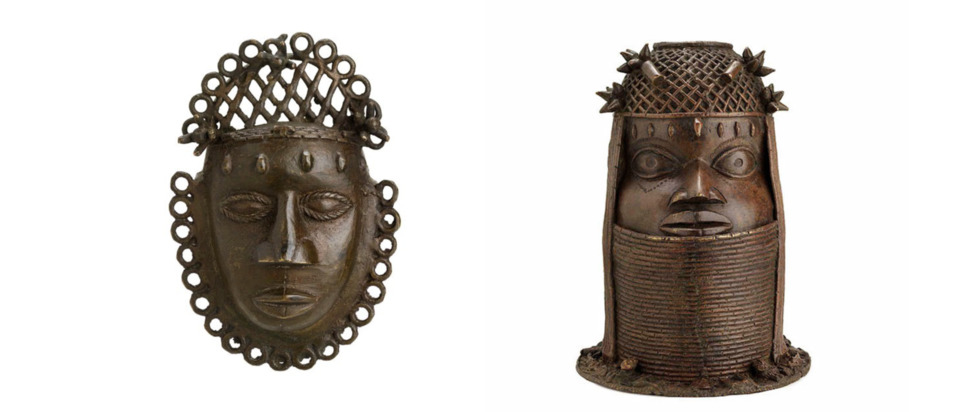Naming the Money: repatriation and reparations
As Scotland’s museums begin the process of repatriating stolen goods, the absence of discussions around reparative justice is glaringly obvious
On 25 March 2021, the University of Aberdeen became the first institution in the UK to commit to repatriating a Benin Bronze to Nigeria. The sculpture, depicting the head of an Oba of Benin, was formally returned to its country of origin six months later in October 2021 at a handover ceremony in the city. This event signalled a wider motivation across Scottish museums to begin the process of repatriation.
The British Museum has become the epicentre of conversations around the repatriation of stolen goods, with diplomatic discussions relating to the ‘Elgin Marbles’ (stolen from the Parthenon in Athens by Lord Elgin between 1801 and 1812), becoming the focus of media attention. However, in the last few years, a number of museums across Scotland have already begun the process of repatriating stolen artefacts to their countries of origin.
In August 2022, Glasgow Museums became the first institution in the UK to return looted artefacts to India, with delegates from the Indian High Commission attending a ceremony where seven objects were handed over, including a tulwar (ceremonial sword) and a sandstone relief of a male figure. This is part of a wider and long-term process of repatriation that will also see 19 Benin Bronzes handed back to Nigeria (stolen during a British ‘expedition’ to West Africa in 1897), where they will be displayed in the Edo Museum of West African Art in Benin City. In June 2022, Glasgow Museums welcomed a delegate from the Nigerian National Commission for Museums and Monuments to formalise this transfer of ownership.
Part of the glacial slowness of the repatriation of artefacts from European nations to their former colonies is a paternalistic view that countries of origin cannot care for their own art and artefacts. This problematic view is grounded in a defining aspect of European museum culture – an obsession with conserving and preserving objects for as long as possible. This does not take into account that different cultures understand and view time differently – and many have the view that works of art and objects of cultural significance are not supposed to last forever. They are supposed to break, to decompose, to be repurposed. While the looting and dislocation of these objects may have altered or destroyed their spiritual and cultural significance, their return ensures the restoration of foundational aspects of civilisational heritage.
The repatriation of these artefacts inevitably flows into discussions around reparative (or ‘restorative’) justice – or rather, the absence of it. While repatriation is certainly a significant act, communities in the global south are still reeling from over 400 years of extraction, exploitation and enslavement. The fight for reparative justice has been a decades-long struggle but has gained little traction in Holyrood or Westminster. None of the four nations of the UK have formally apologised for slavery, nor provided reparations for the continued psychological, economic and social harm caused by colonialism. This is despite the fact that only in 2015 did Britain pay off the loan it borrowed to pay ‘reparations’ to former slave plantation owners – which was paid to them in 1833. Enslaved people, nor their descendants, have never received reparations.
As the Commonwealth loses its significance and clout, and many former British colonies distance themselves from the UK (Barbados’s decision in November 2021 to remove the British monarch as head of state signals a major shift), the argument for both repatriation and reparation is increasing in intensity. Scotland’s complex and violent historical relationship with many African and Caribbean countries (particularly with Jamaica) remains absent from popular and political knowledge. As the momentum for repatriation snowballs in Scotland, so must the momentum for reparative justice, to make amends for the harm inflicted on the nations in the global south.
